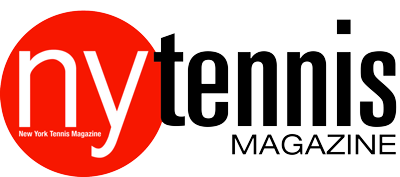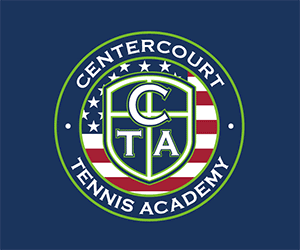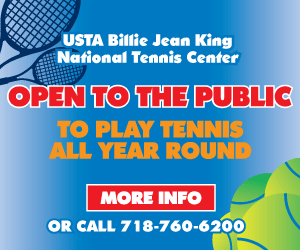What Makes A Great High Performance Summer Camp?

Parents who are looking for a serious, high performance camp for their kids have a number of options both in the US and internationally. As a camp and club owner myself, I speak with parents all the time about what they need for their children at camp and the positives and negatives of certain programs.
Here are some of the most important aspects of great summer camps for serious players that parents, coaches, and players should consider before signing up, and will truly make a difference in the athlete’s long-term development:
The Guru
The head coach is the leader of the entire program who sets the tone and energy for the entire academy. The head coach defines the teaching approach and philosophy for all the staff coaches and should be active working with the players in the program. Too often the guru is MIA and doesn’t work enough on the court. Many times, the head coach is more of a camp/office administrator, organizing practices but leaving the actual coaching to assistants. Other head coaches are very active coaching but only work with the elite players in the program. In this instance, developing players and lower UTR players can slip through the cracks and don’t have access to the elite coaching knowledge of the guru. That’s a red flag and a very common scenario at famous academies. Sometimes the head coach only gives very expensive private lessons and doesn’t work with the groups at all—another red flag.
I believe that if a coach puts his name on the academy, he should work with all the kids visiting and take an active role developing all the players in the summer program—not just the elite ones.
The Ratio
Personal attention is key. Some summer programs are victims of their own success and marketing. They take literally hundreds of players and use interim staff to coach the influx of kids. It’s very difficult to give personal attention when a camp is very large.
While it can be exciting to go to a famous camp with hundreds of players, that kind of scale is typically where many kids will fall through the cracks. Many camps offer four, five or six players per court and coach. Four players per court and coach is typical. That’s not bad—but it’s also not great. I prefer the Spanish approach with two-three players per court or coach. This way, the players get more attention from the instructor and get to hit more balls.
The quality of the coaches is just as important. The head coach must train the coaches and supervise them well. This is almost impossible to do well if the camp is running dozens of courts. Smaller is typically better with a tight-knit team and close supervision by the lead coach. With dozens of courts running and hundreds of campers, it’s clear that quality control will be a bigger issue.
The Intensity
Summer camp is supposed to be fun, but it also must be demanding and challenging. Coaches need to be kind but exigent. Players who are serious need serious coaching and they need to be pushed. The greatness has to be extracted. The kids need to be challenged both on the court in their tennis and off the court in the gym. This approach gets the most growth and development out of the player in the least amount of time and makes for a more productive camp experience. Too often camps water down the summer experience and make it more of a holiday camp rather than a boot camp.
The Technical Instruction
Getting good technical and footwork instruction is a must, especially if a camper is younger and still developing in those areas. Older and higher level UTR players may not need or want as much technical coaching—and that’s fine. Younger players or those with less experience, on the other hand, need help with their skills. Many academies gloss over technical and footwork flaws either because the coaches are not knowledgeable to fix them in a short amount of time, or the coaches simply don’t want the hassle.
Make sure to find a camp with a great technical guru on board—an experienced technical coach on staff who has expertise in building the technique and movement of developing players. Watch out for camps that teach no technique and only focus on tactics. Watch out for camps that don’t train movement and footwork. Be wary of camps that are the opposite and hyper focus on technique above all else. Those types of environments can sometimes cause more damage than teaching no technique at all by making unnecessary changes and forcing kids to analyze their games in too much detail, paralyzing them during match play.
The Tactical Instruction
Tactical instruction is just as important as technical instruction and usually becomes the priority with older and higher level kids. Most parents, players and coaches looking at summer camps want lots of real match play and help with strategy by the coaching team. Camps should have time each day for actual set play—not just baseline points and modified games. Coaches should watch the matches and provide feedback both during and after play. Some camps are very good at providing this while other camps drop the ball. One of the best aspects of summer camp is access to a variety of different players and opportunity to play lots of matches. Camps should also offer summer tournament play, preferably onsite (see below).
The Fitness Program
The summer time offers an opportunity to improve fitness and prevent injuries. Unfortunately even some of the best academies in the world offer Mickey Mouse, lowest-common-denominator physical training programs in the summer. It’s such a shame and waste of valuable time. Parents, coaches and players should look for professionally run fitness programs lead by certified strength and conditioning coaches. One of the best certifications to look for is the NSCA’s CSCS designation—the gold standard in the industry.
Psychology and Emotional Control Training
While many summer programs are beginning to recognize the importantance of mental and emotional training, this area is tricky to work on at camp. Some programs are now offering a general classroom psychology education program during the camp week. Others like my own camp, prefer to work on this area of the game integrated into the on court tennis training and match play and off the court in the gym. It’s important to build character and develop mental toughness. Some camps neglect these areas completely.
Indoor Courts
Many summer camps look fantastic, but they don’t have indoor courts on site in case of rain. That is a HUGE problem if the weather is inclement during summer weeks. I have spoken with many parents who swear they will never send their kid to another summer camp without indoor courts because the rain risk is too great. Some players are also susceptible to sun and allergies outdoors. It’s great to have an indoor option for those players.
Tournaments
As mentioned previously, camps should have competition opportunities onsite or nearby for all the campers. Many camps offer verified UTR and other tournaments so that players can practice what they have learned under pressure and build ranking or rating points. Tournament play and camp should go hand in hand.
Follow Up
It’s very upsetting for me to hear stories of players who attended summer camp and received very little follow up to continue the progress they made. What’s the point of learning new skills if the player forgets what they have learned in the weeks and months after camp? The best camps provide follow up and even continued training opportunities year-round so that players can continue to refine what they have learned.
Many camps offer generic report cards that the staff fills out. These are usually hastily written and worth very little. The best camps offer comprehensive feedback for parents and work actively with the player’s home coaching team. Communication is key. The head coach should be available to talk about the player’s game and coordinate with the parent and home coaching team.







